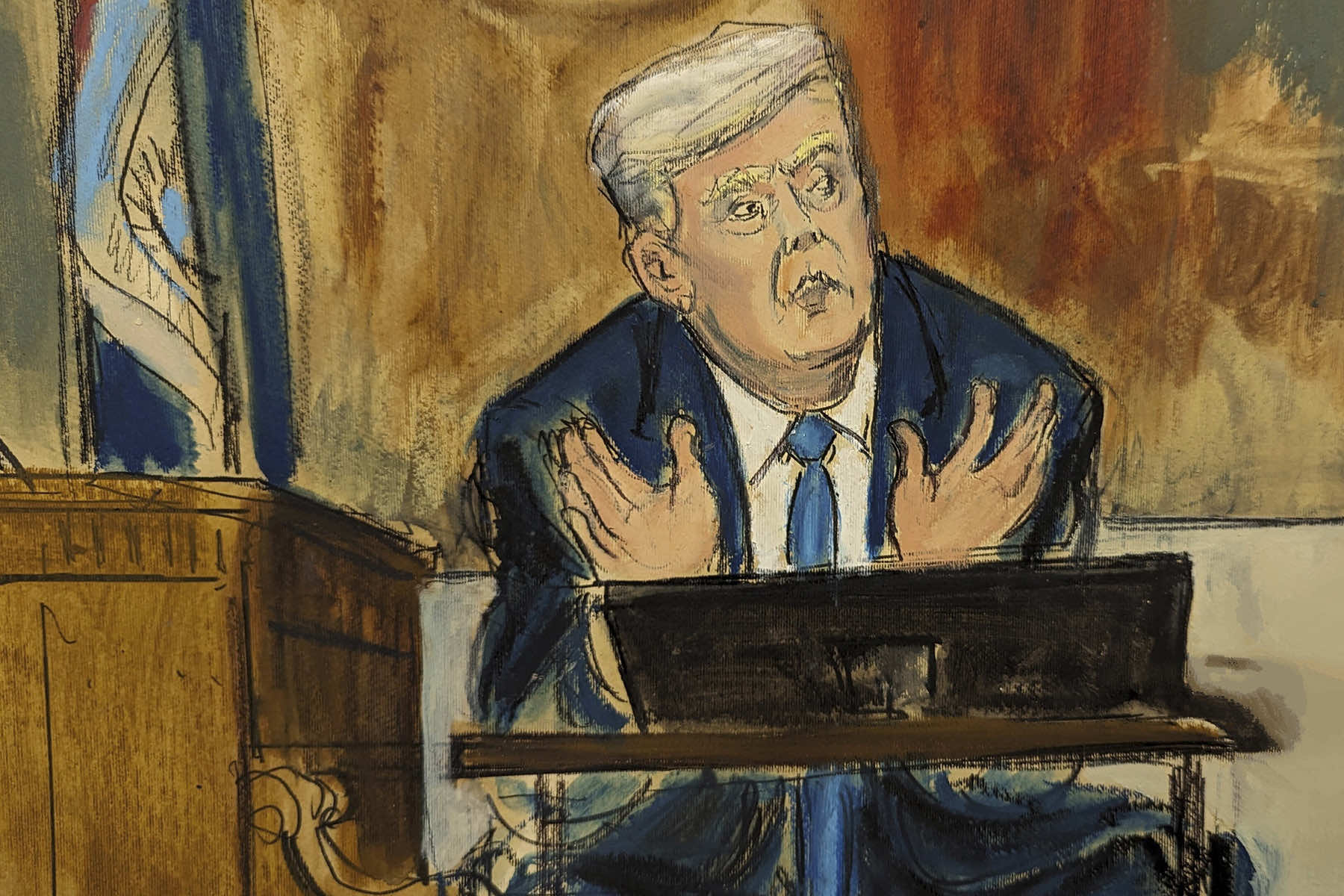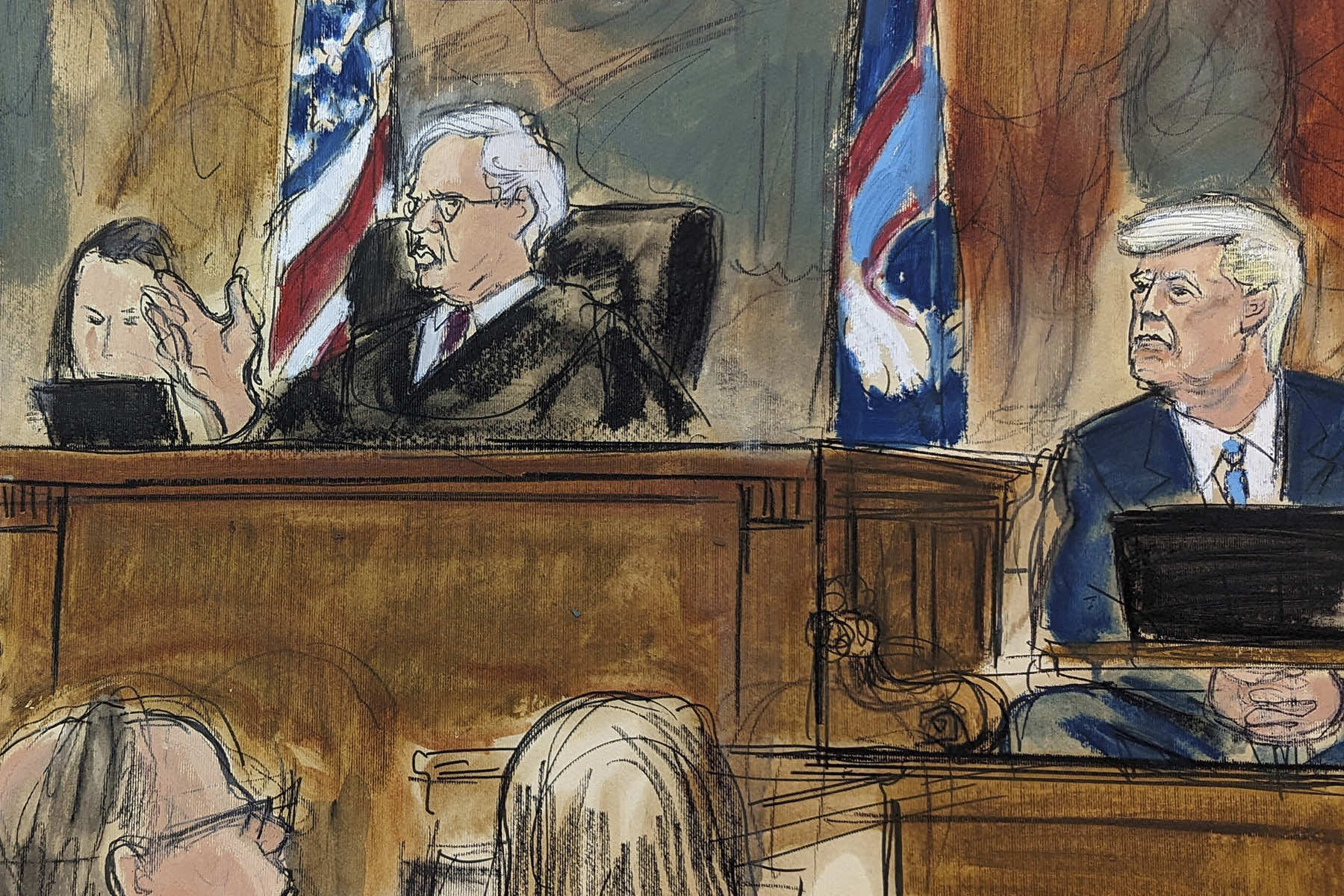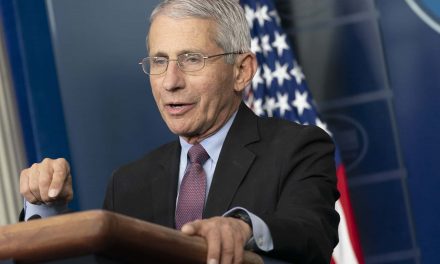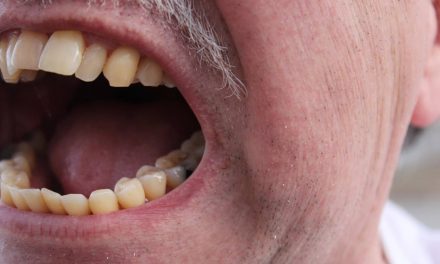
Donald Trump is a confidence man, a charlatan, an unrepentant liar whose deceits have cost at least a half-million Americans their lives.
When Dustin Thompson was hauled before U.S. District Judge Reggie Walton for assaulting the Capitol police on January 6th, his defense lawyer, Samuel Shamansky, argued about Trump:
“You had, frankly, a gangster who was in power. The vulnerable are seduced by the strong. That’s what happened.”
The jury didn’t buy the argument and sent Thompson to prison, as US District Judge Reggie Walton, who was overseeing the case, said:
“I think our democracy is in trouble because, unfortunately, we have charlatans like our former president who doesn’t, in my view, really care about democracy but only about power.”
And yet Trump remains popular with about 20 percent of the American public, making up the majority of the Republican primary-voting base. But why?
There is nothing new about charlatans and confidence men. Marco Antonio Bragadini (1545-1591) was one of Europe’s most famous: he convinced both a pope and the government of Venice that he could turn lead into gold and they financed a lavish lifestyle for most of his life.
William Thompson was America’s first labeled “confidence man” in New York in the 1840s because he’d approach wealthy men, pretend they were old friends, and ask them if they had “the confidence” to give him their gold watch for an hour: many did, and he ran the scam for years before being busted.
Donald Trump similarly convinced banks that he was had assets worth ten, twenty, sometimes more than fifty times their real value as was revealed in court this week. The self-proclaimed “king of debt” then used his borrowed money to support a lifestyle that reinforced everybody’s belief that he was truly rich.
After American banks refused to lend Trump money, he and his good friend Jeffrey Epstein turned to Deutsche Bank and managed to extract over $2 billion from that institution with the help of William Broeksmit, Thomas Bowers, and Justin Kennedy.
Broeksmit hanged himself in 2014, leaving a suicide note and paperwork tying him to the bank’s unit accused of laundering some $10 billion of Russian oligarch money along with over $400 million in questionable loans to Trump.
As stories about Trump’s finances began hitting the media in 2019, Tom Bowers (55 years old), who signed off on Trump’s loans, also hanged himself.
Justin Kennedy worked for Deutsche Bank from 1998 to 2009 and, according to the Finance Editor of The New York Times, David Enrich as reported by The Guardian’s Julian Borger:
“Drawn to Trump’s risk-taking and glamour, he [Kennedy] became a Trump confidant, sitting with the real estate impresario at the US Open tennis or in Manhattan nightclubs, and chaperoning huge loans to finance Trump’s real estate spending sprees.”
Kennedy was also the son of US Supreme Court Justice Anthony Kennedy who, when apparently asked by Trump to resign to make room for Brett Kavanaugh, mysteriously complied and stepped away from one of the most powerful positions in America.
Without the help of these three men, Trump would almost certainly have ended up broke and destitute. He’d been sued thousands of times for nonpayment of his debts and was well known to New Yorkers as a hustler and scam artist with a long string of failed businesses behind him.
In fact, by the time of his bankruptcies in the 1990s he had squandered almost all the roughly half-billion dollars he inherited from his father and stole from his brother, nephews, and nieces before being rescued by mobbed-up Russian oligarchs looking to launder ill-gotten gains via real estate.
NBC further saved him by making him the star of a reality TV show that was every bit as deceptive about Trump’s wealth and business acumen as were Bragadini’s exhibitions of gold he’d “transmuted” from lead.
This is the great patriot whose father hired a doctor to lie about his being disabled by bone spurs in his feet to get him out of the Vietnam draft five times. Five other young men were sent to that hellscape to die or be injured in Trump’s place.
- He promised to build a wall across almost 2,000 miles of our southern border and he promised Mexico would pay for it. Instead, he built about 50 miles of wall and repaired another 400 that was scheduled for maintenance anyway. Mexico did not contribute a penny: the money was taken from the Pentagon budget for upgrading soldiers’ housing.
- Trump promised to cut the deficit, a routine lie from every Republican president since Reagan. Instead, he added at least $8 trillion to our national debt.
- He promised to replace Obamacare with a national health care plan that would cover everybody for lower cost. It was another lie, just like when he promised to cut drug prices for seniors: instead, Joe Biden got drug prices under control and insulin down to $35/month.
- Trump promised he was going to cut taxes on the middle class: instead, he raised taxes on working people while cutting over $2 trillion from the tax obligations of America’s billionaires.
- He told us COVID would just “go away like magic.” It did not. The week of April 7, 2020, when he learned that the disease was mostly killing Black and Hispanic people, he abandoned efforts to contain the virus and issued an executive order requiring mostly minority essential workers to go back to work: as a result, over a half-million Americans died unnecessarily.
- Trump ridiculed Obama for occasionally playing a round of golf, saying he would be so busy as president that he’d never take that kind of time off. Instead, he billed you and me for over $135 million for the 250+ times he visited his own golf clubs.
- He said he had increase economic growth by four percent, a number America hadn’t seen since the 1960s. Instead, like Herbert Hoover, he left office with fewer jobs than when he entered. Joe Biden, however, just oversaw a GDP increase that was over 4% and more jobs created in a president’s first two years than any time in American history.
- He repeatedly promised an infrastructure plan: every week for months, it seemed, was “infrastructure week.” But it never happened: instead, Joe Biden put a massive infrastructure program in place that’s today producing jobs across the nation.
- Trump promised to “fight for the dignity of women and mothers.” Instead he’s been convicted of raping E. Jean Caroll and more than 20 other women claim he did the same to them. And he brags about packing the Supreme Court to overturn abortion rights in America.
It is almost impossible to find a transcript of any speech or press conference by Trump that’s not filled with exaggerations and lies: over 30,000 of his falsehoods while in office were compiled into a book. Trump’s persistent lies have become so common that the media no longer reports on them.
Trump cheated on and lied to each of his three wives, lied on his taxes, lied to his bankers and insurance companies, and lied to the American people. And yet, he is still held in the tight embrace of Republicans nationwide. Why?
One theory is that people are basically trusting, and we tend to measure somebody’s truthfulness by the certainty with which they make their assertions. Pathological liars like Trump can be shockingly convincing: it is the con man’s stock in trade.
They prey on the fact that most people conflate or confuse confidence with competence. In fact, most truly competent people rarely act arrogantly confident: instead, they are constantly testing their understandings and skills against reality to keep sharp and accurate.
Another theory is that the people who support him know he’s a liar and a fraud and don’t care, so long as he promises to hurt those they mutually hate: Black people, Hispanics, Muslims, the queer community, uppity women, academics, and liberals.
It is a variation on the old saying, “He may be an SOB, but at least he’s my SOB.” People who are motivated by fear and hate — like much of the Republican base — are not usually all that concerned with what they consider the nuances of honesty and integrity.
Which brings us to the final reason why so many people still trust and follow a known liar and con man like Donald Trump: they’ve bought into what’s essentially a cult.
The first imperative of all cult leaders is to cut their followers off from contrasting information that may shatter the cult’s hold over them. While Jim Jones and Osho had to forbid their followers from reading or watching the news to accomplish this, Trump has three television networks, hundreds of websites, and fifteen hundred radio stations all echoing his lies to keep his cult intact.
The good news is that Trump has been able to get as far as he has, both in business and politics, because most people are basically good and trusting. The bad news is that he’s succeeded in suckering millions of those trusting people with his Pied Piper routine.
Trump’s civil and criminal trials may go a long way toward puncturing his carefully crafted façade of business and personal success. If they do not — if, as feared, they merely strengthen him — we are all in for a really rough ride over the next few years.
Elizabeth Williams
© Thom Hartmann, used with permission. Originally published on The Hartmann Report as Why Is America So Vulnerable to Charlatans Like Trump?
Subscribe to The Hartmann Report directly and read the latest views about U.S. politics and other fascinating subjects seven days a week.















